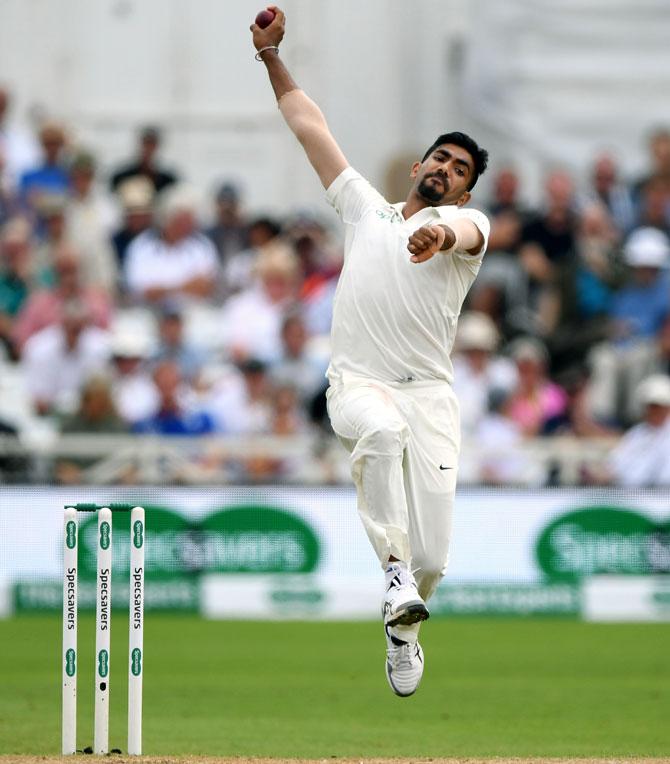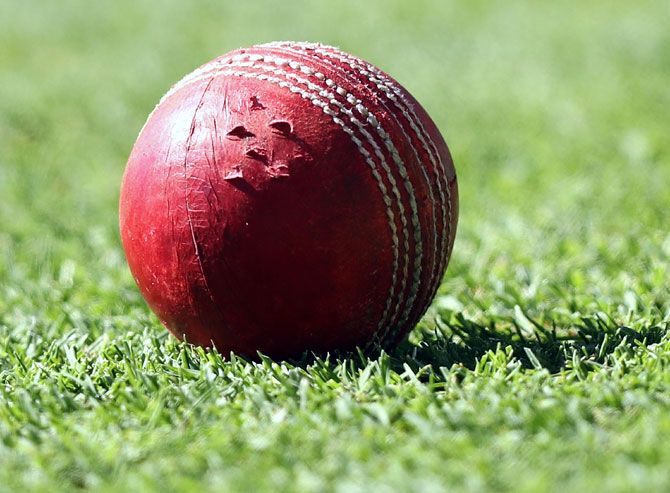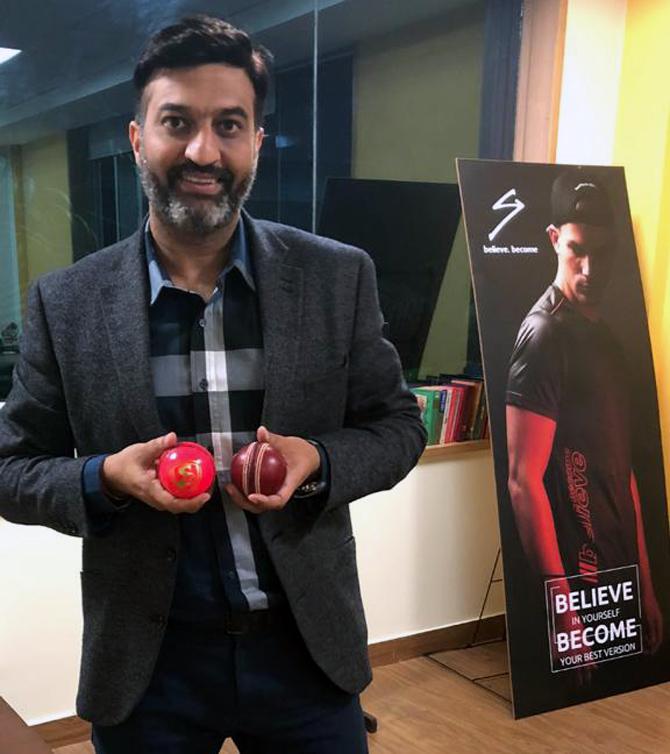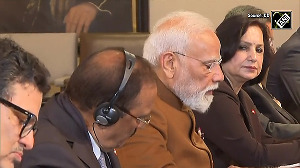'There could be a law where you can say from the 15th over or the 20th over, you can give the wax polish to the bowlers.'

The coronavirus pandemic is set to ring in some major changes in cricket.
One of them could be discontinuing the use of saliva or sweat to shine the ball.
The International Cricket Council, during its chief executives committee meeting, revealed it is considering the use of external substances to help shine the ball, a practice that helps bowlers get reverse swing, especially in Test cricket.
Earlier this week, Australian sports manufacturer Kookaburra announced that it has developed a wax applicator to help shine cricket balls during a match without the use of saliva or sweat.
And now India-based SG (Sanspareils Greenlands) has confirmed having already started the process of developing a similar product which could be ready in two weeks's time before getting it tested in match conditions once the lockdown is lifted and get it ready for match play.

"I had said a week back that wax polish can be used as an alternate and the umpires can be given that polish to be given to the bowlers. There could be a provision that you can apply an X-amount of wax polish which will help the bowlers to shine the ball," SG's Marketing Director Paras Anand tells Harish Kotian/Rediff.com.
"That is what is needed because you need to maintain the shine on one side and just let the other half get scuffed up. So I think that can be managed," Anand adds.
"We have been in lockdown for almost two months so we have not been able to do too much work. We have not gone to our workshop and done the R & D, but the little bit of R & D that we have been able to do at home there are results that we are seeing that the shine can be maintained," says Anand.
Detailing how the process could work out, Anand explains: "So it could be something like how the umpires check the size of the ball using a gauge; then they have the counters to count the number of balls. Similarly, the wax polish can be given to the umpires and once the ball is slightly old, between the 15th to 20th over, when the shine starts to disappear initially, depending on the pitch condition, like how much grass is there, it be could earlier or later also."
"There could be a law where you can say from the 15th over or the 20th over, you can give the wax polish to the bowlers. Based on the R & D or the trial that we do, like we have three reviews per innings, similar every five overs they could give the wax so many number of times to the bowlers," Anand points out.
"So these things can be worked upon. Obviously, that has to be tried in match conditions first. It has to be played over a period of 80 overs which has not happened because of the lockdown," he adds.
If not for the national lockdown, Anand says the Meerut-based cricket equipment manufacturer would already have developed the product.
"They (Kookaburra) are also talking about the same thing. But it is just that because Australia is not under lockdown so they have been able to do more R & D," he says. "We have done some trials at home last week which were quite successful, but again it needs match conditions to validate what we are saying and that has not happened so far."

Anand says SG will need around two weeks once the company gets back to work after the lockdown to work out the amount of wax that is needed to ensure that there is not much of a difference when it comes to shining the ball with saliva or sweat.
"It will take testing of around to 10 days to a couple of weeks after which we can work out the best possible solution which is similar to what is happening currently," he says.
"We don't want a lot of variation to where we are with regards to reverse swing. For 10 days to two weeks max we should be able to come out with possible alternates, the amount of wax to be used and little variation that we will have to do compared with the current processes. It is not going to be cumbersome," he adds.
"The whole idea is not to bring about too many changes, to show that there isn't a lot of variations from what the bowlers are able to do with the ball currently."
Australian spin legend Shane Warne had, on Tuesday, offered an alternative to help the ball swing without saliva and sweat.
'Why can't the ball be weighted on one side so it always swings? It would be like a taped tennis ball or like with the lawn bowls,' Warnie told the Sky Sports cricket podcast.
Anand says that will be impossible as it will tilt the balance too much in the bowlers's favour.
"That will completely change the dynamics. I don't agree with that. That will be in favour of the bowlers right from ball one. It is a good idea definitely, but I think it will favour the bowlers a lot more. It is understandable Shane Warne saying that because he is a bowler," says Anand.
The lockdown has thrown the sports manufacturing industry out of gear, says Anand, explaining that SG has lost revenues worth 20 to 30 percent for this financial year in the last month-and-a-half.
"Definitely, it is a worrying time for us, not just for sports manufacturers or maybe the sports industry. It's a worry for pretty much everybody, whether you are into real estate, whether you are into the automobile industry, whether you are into retail," he says.
"People are worried about their future, whether they will retain jobs, whether they will have earnings in the future. It's difficult, it's very tough," he says.
Despite the financial woes SG has been paying all its employees their monthly salaries.
"We have about 1,500 employees, and we have been paying them. We have paid them for March and we will pay them for April also; the amount is pretty substantial."











